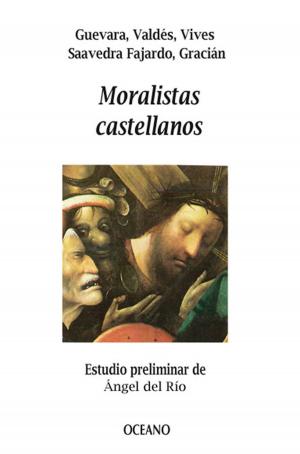Complete Philosophy Religion Essays
Nonfiction, Religion & Spirituality, Philosophy, Humanism, Good & Evil, Ethics & Moral Philosophy| Author: | Friedrich Wilhelm Nietzsche | ISBN: | 1230000293617 |
| Publisher: | AGEB Publishuing | Publication: | January 26, 2015 |
| Imprint: | Language: | English |
| Author: | Friedrich Wilhelm Nietzsche |
| ISBN: | 1230000293617 |
| Publisher: | AGEB Publishuing |
| Publication: | January 26, 2015 |
| Imprint: | |
| Language: | English |
A German philologist, philosopher, cultural critic, poet and composer. He wrote several critical texts on religion, morality, contemporary culture, philosophy and science, displaying a fondness for metaphor, irony and aphorism.
The Antichrist-
Save for his raucous, rhapsodical autobiography, "Ecce Homo," "The Antichrist" is the last thing that Nietzsche ever wrote, and so it may be accepted as a statement of some of his most salient ideas in their final form. Translated from the German by H.L. Mencken.
Contents
Thoughts out of Season, Complete I & II (1909)
We Philologists (1911)
On the Future of our Educational Institutions (1910)
Homer and Classical Philology (1910)
The Case Of Wagner, Nietzsche Contra Wagner, and Selected Aphorisms (1911)
The Dawn of Day (1911)
Human, All Too Human: A Book for Free Spirits (1908)
Human, All-Too-Human: A Book For Free Spirits; Part II (1913)
The Antichrist (1918)
Thus Spake Zarathustra: A Book for All and None (1885)
Beyond Good and Evil (1886)
Thus Spake Zarathustra: A Book for All and None (1885)
A philosophical novel by German philosopher Friedrich Nietzsche, composed in four parts between 1883 and 1885. Much of the work deals with ideas such as the "eternal recurrence of the same", the parable on the "death of God", and the "prophecy" of the Übermensch. Translated by Thomas Common, with notes by Anthony M. Ludovici.
Beyond Good and Evil (1886)
In this work Nietzsche critises old philosophers and some of their views on 'free will', knowledge, truth, etc. He felt that the philosophers in the past had not been critical enough about morality, accepting the Chistian views on this theme without questioning those views. Nietzsche tells in this book what qualities philosophers should have, he believed philosophers should move on, into the area 'beyond good and evil'.
A German philologist, philosopher, cultural critic, poet and composer. He wrote several critical texts on religion, morality, contemporary culture, philosophy and science, displaying a fondness for metaphor, irony and aphorism.
The Antichrist-
Save for his raucous, rhapsodical autobiography, "Ecce Homo," "The Antichrist" is the last thing that Nietzsche ever wrote, and so it may be accepted as a statement of some of his most salient ideas in their final form. Translated from the German by H.L. Mencken.
Contents
Thoughts out of Season, Complete I & II (1909)
We Philologists (1911)
On the Future of our Educational Institutions (1910)
Homer and Classical Philology (1910)
The Case Of Wagner, Nietzsche Contra Wagner, and Selected Aphorisms (1911)
The Dawn of Day (1911)
Human, All Too Human: A Book for Free Spirits (1908)
Human, All-Too-Human: A Book For Free Spirits; Part II (1913)
The Antichrist (1918)
Thus Spake Zarathustra: A Book for All and None (1885)
Beyond Good and Evil (1886)
Thus Spake Zarathustra: A Book for All and None (1885)
A philosophical novel by German philosopher Friedrich Nietzsche, composed in four parts between 1883 and 1885. Much of the work deals with ideas such as the "eternal recurrence of the same", the parable on the "death of God", and the "prophecy" of the Übermensch. Translated by Thomas Common, with notes by Anthony M. Ludovici.
Beyond Good and Evil (1886)
In this work Nietzsche critises old philosophers and some of their views on 'free will', knowledge, truth, etc. He felt that the philosophers in the past had not been critical enough about morality, accepting the Chistian views on this theme without questioning those views. Nietzsche tells in this book what qualities philosophers should have, he believed philosophers should move on, into the area 'beyond good and evil'.















